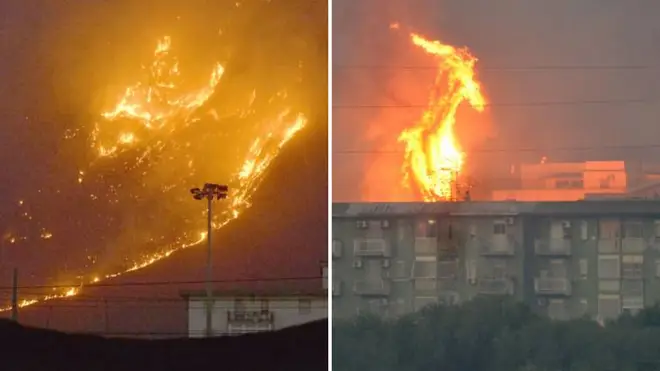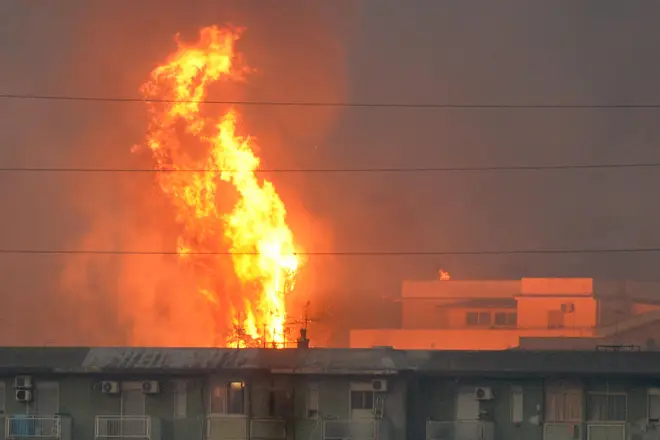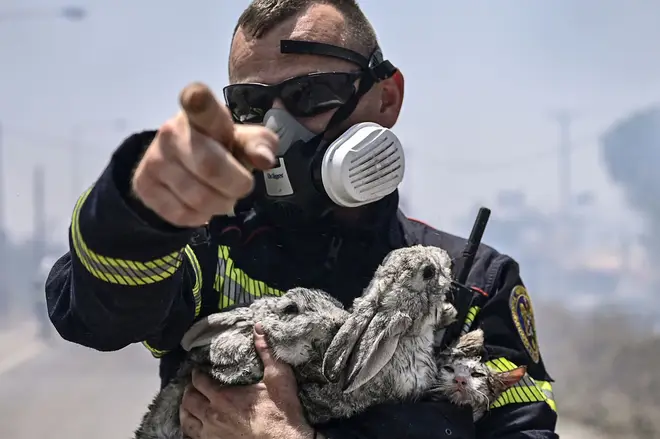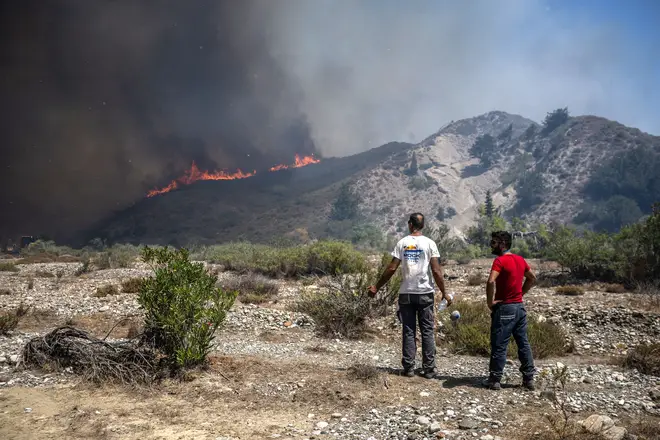
Clive Bull 1am - 4am
25 July 2023, 11:27 | Updated: 25 July 2023, 11:44

Wildfires broke out in Sicily overnight on Tuesday morning, reaching the airport of the island's capital city, with firefighters rushing to quell the blaze.
Palermo Airport was closed because of the fire, which emergency services eventually managed to get under control.
The airport partially reopened for business at 11am local time (10am UK time), with some flights able to land. Several flights have been cancelled.
One elderly woman suffering a medical emergency died because an ambulance was unable to reach her home because of the fire, Reuters reported.
The Sicily blaze comes at the same time as massive wildfires in Greece and elsewhere, amid soaring temperatures in southern Europe.
Aggiornamento: emesso Notam di chiusura scalo aereo fino alle 11 local time #Sicilia #aeroporto di #Palermo #incendio pic.twitter.com/r9hyVTQOGi
— Aeroporto di Palermo (@AeroportoPa) July 25, 2023
Temperatures rose to 47.6 C on Monday in some eastern parts of Sicily. That's close to the record European high of 48.8C, which was also recorded on the island in 2023.
Some 16 cities in Italy - including Palermo and Catania in Sicily - have been put on red-alert. Power cuts and water supply issues have been a frequent problem in some cities, with officials putting the outages down to the heat.
Meanwhile Sardinia, another Italian island that is further north than Sicily, has reached 46C over the past week.
Chiara Marcis, who lives in a seaside town on the island, told LBC: "This week is like a nightmare, like you can't go outside.
"During night, it seems like it's day, like last night was 30C."

Thousands of British tourists are still thought to be waiting for evacuation from the Greek island of Rhodes, which has been ravaged by wildfires in recent days.
Holiday operators and airlines have been running repatriation flights and regular scheduled trips to take people from the island.
TUI and Jet2 have cancelled flights to Rhodes, but a number of airlines are still running flights. Corfu, another Greek island, has also seen major wildfires, with authorities issuing another evacuation order on Tuesday morning.
Crete, a third island, has been put on high alert for fires.
Meanwhile fires have also broken out in several more Mediterranean countries, including Algeria and Tunisia in north Africa. Spain has also suffered wildfires.

The UK has seen very different conditions to much of the rest of Europe in recent weeks, with the weather often wet and grey instead.
But 40C temperatures - such as in summer 2022 - may become more frequent because of man-made climate change, according to the Met Office.

Forecaster Oli Claydon said: "The likelihood of exceeding it going forward somewhere in the UK in a given year is now increasing due to human-induced climate change.
"So as well as the need to mitigate against future climate change by reducing emissions of greenhouse gases, we're already experiencing the impacts of climate change now."
And this weather, which until now has been considered extreme, is likely to prove fatal for elderly and vulnerable people, according to a climate change expert.
Dr Candice Howarth, of the London School of Economics Grantham Research Institute on Climate Change and the Environment, said: "If the government fails to show more leadership in preparing for these extreme heat events, then we are likely to see a rise in heat-related deaths, wider impacts on workers’ health and productivity, and increasing rates of overheating in UK homes and buildings."